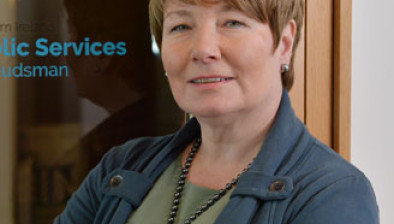RUC made failings in investigation of Kingsmill massacre

The Police Ombudsman for Northern Ireland has identified failings in the RUC investigation into the Kingsmill massacre, one of the worst atrocities of the Troubles.
A new report from Marie Anderson says that the investigative resources allocated to investigate the 1976 murder of 10 Protestant men were “wholly insufficient”.
The 10 victims were murdered by the Provisional Irish Republican Army when the minibus taking them home from work at Glenanne Mill was stopped by a group of armed men on the Kingsmill Road, Co Armagh, on 5 January 1976.
One passenger, identified as a Catholic, was told to leave and the remaining 11 men were shot multiple times. Only one man, Alan Black, survived.
The murders were said to have been in retaliation for loyalist paramilitary attacks carried out the day before on the Reavey and O’Dowd families which resulted in the deaths of six people.
The RUC failed to arrest and interview 11 suspects linked by intelligence to the attack, according to Mrs Anderson’s new report.
The original investigation also failed to exploit ballistic links with other attacks in which the same weapons were used and there were missed investigative opportunities and inadequacies in areas such as forensics, fingerprints and palm prints, and witness enquiries.
Mrs Anderson said: “By today’s standards, the investigative resources available were wholly insufficient to deal with an enquiry the size of the Kingsmill investigation.
“The situation was exacerbated by a backdrop of multiple terrorist attacks in the South Armagh and South Down areas that stretched the already limited investigative resources available even further.
“The detective leading the investigation had a team of eight to assist him in investigating 10 murders and an attempted murder, which was supplemented for only a matter of weeks by two teams of about eight to 10 detectives from the RUC’s regional crime squad. This was entirely inadequate.”
Some of the families of the Kingsmill victims made complaints of collusion.
However, Mrs Anderson said: “I have taken into account the limitations on my powers to decide on a complaint of ‘collusion’ as outlined in the Court of Appeal judgment in Re Hawthorne and White.
“In consequence of the judgment of Scoffield J on 6 February 2025, I am unable to form an evaluative view of my own on conduct constituting ‘collusion’ or ‘collusive behaviours’.”
Belfast firm KRW LAW represents Karen Armstrong, the next-of-kin of victim John McConville, and survivor Alan Black.
Barry O’Donnell, associate solicitor at KRW LAW, said: “Our clients have waited patiently for the release of this statement from the Ombudsman. They feel completely vindicated given the content of today’s statement.
“The Ombudsman has substantially upheld all complaints about police investigative failings.”










